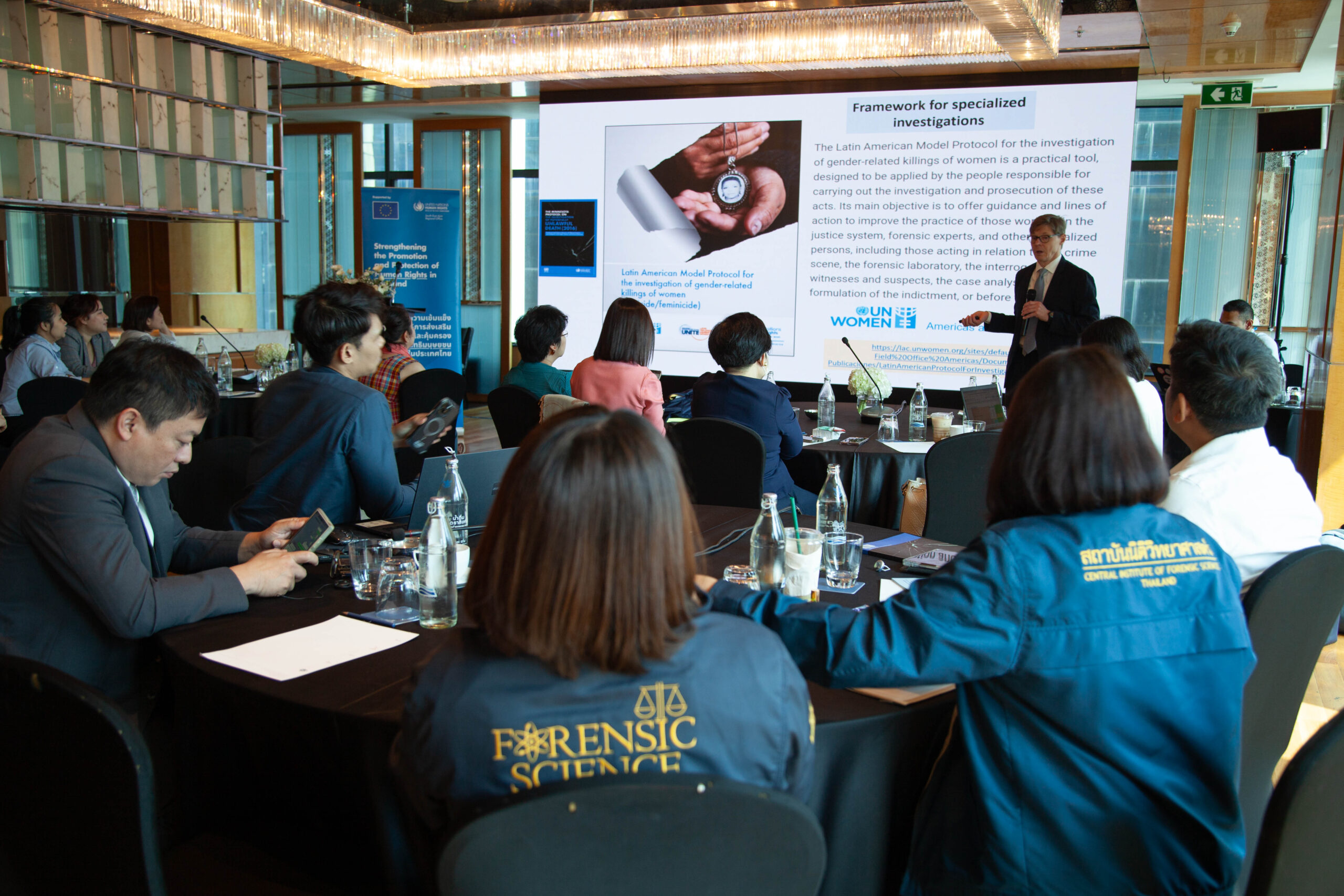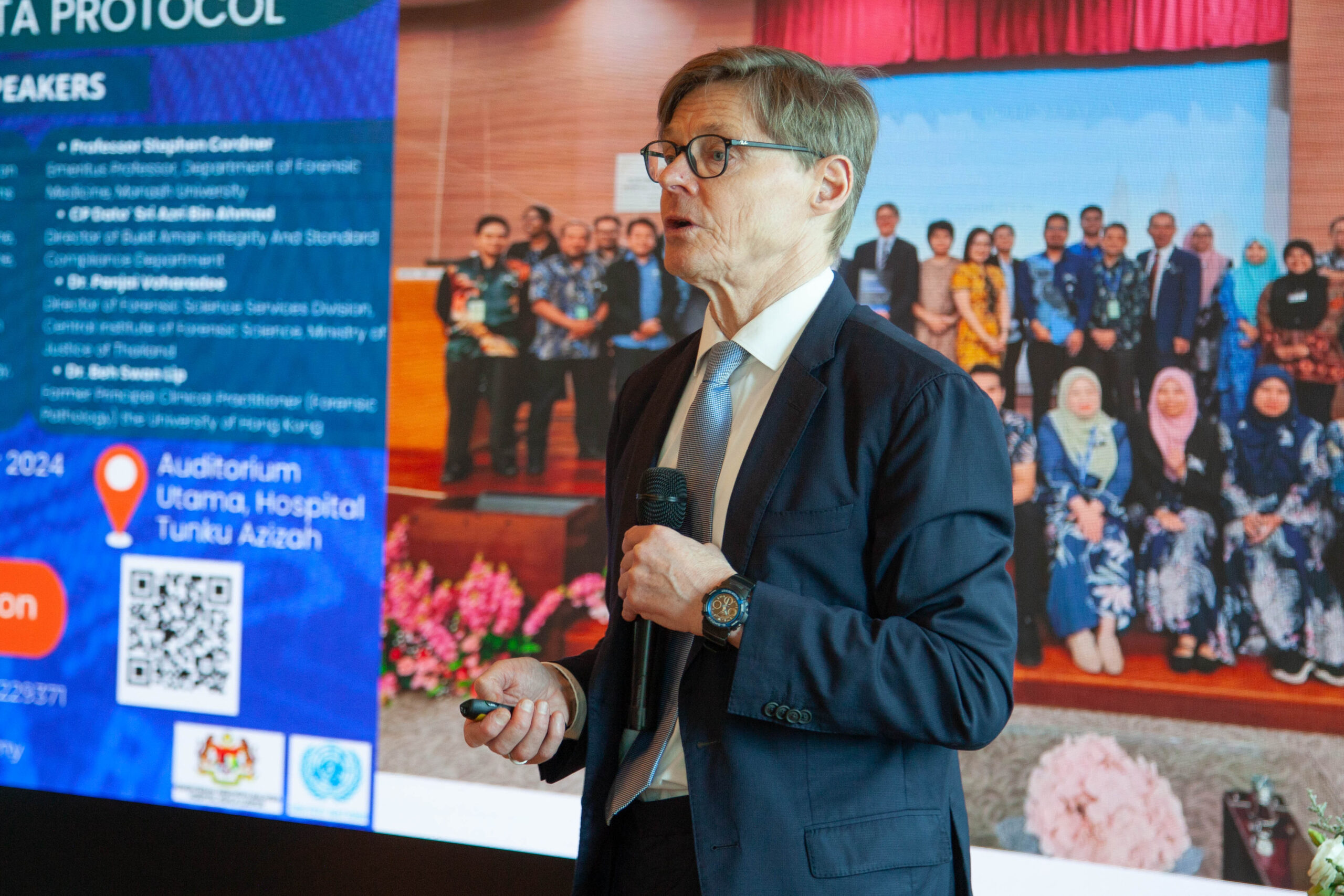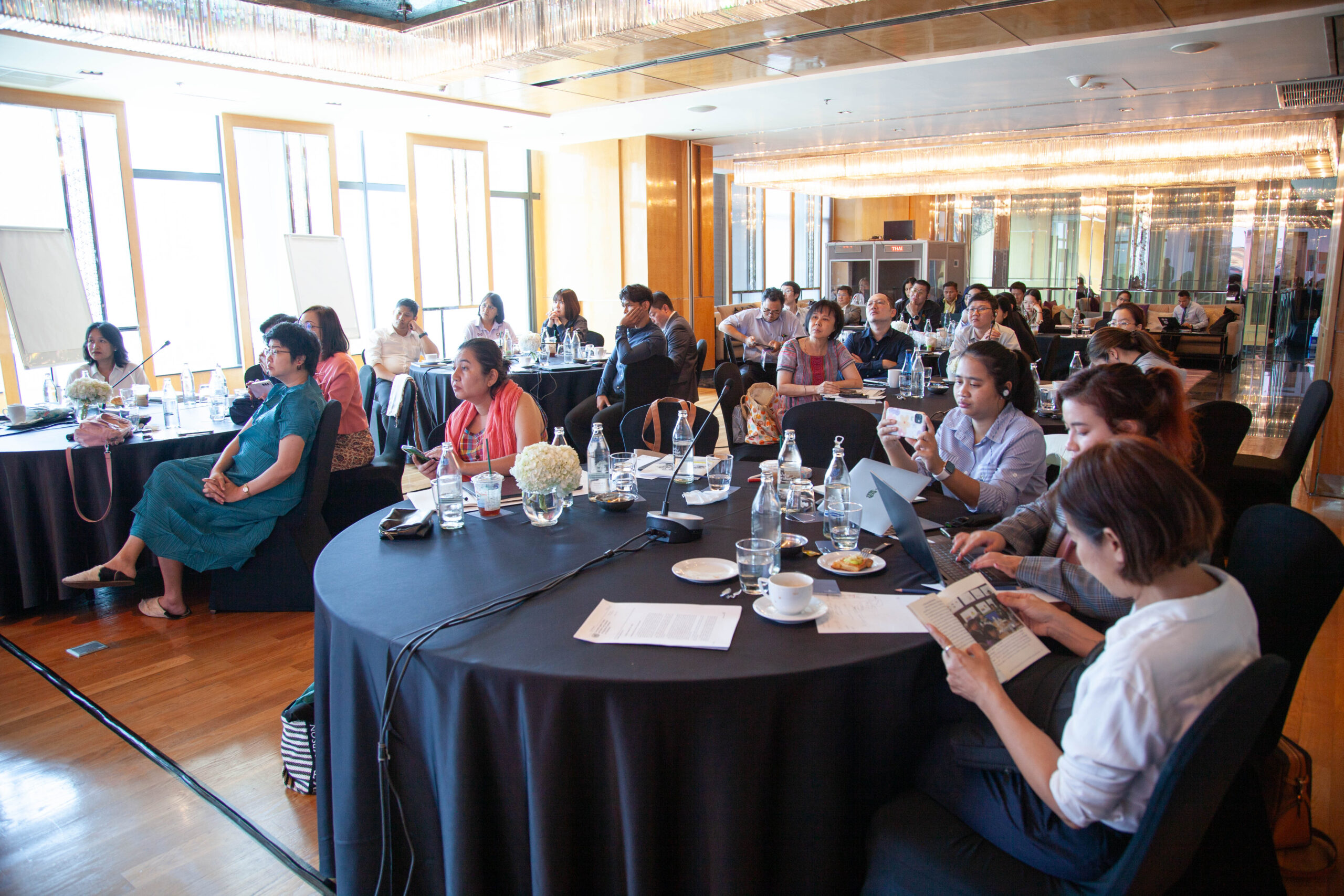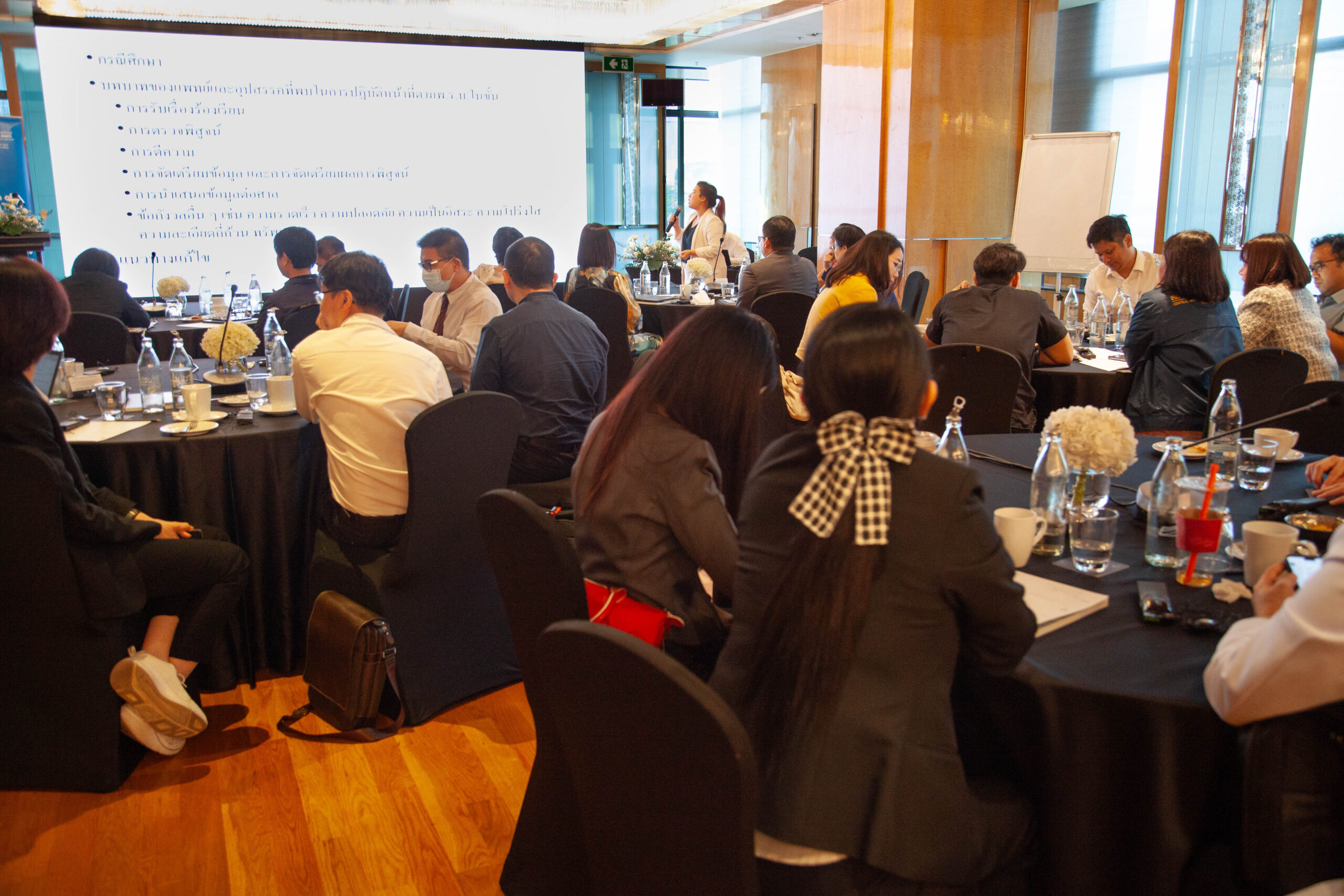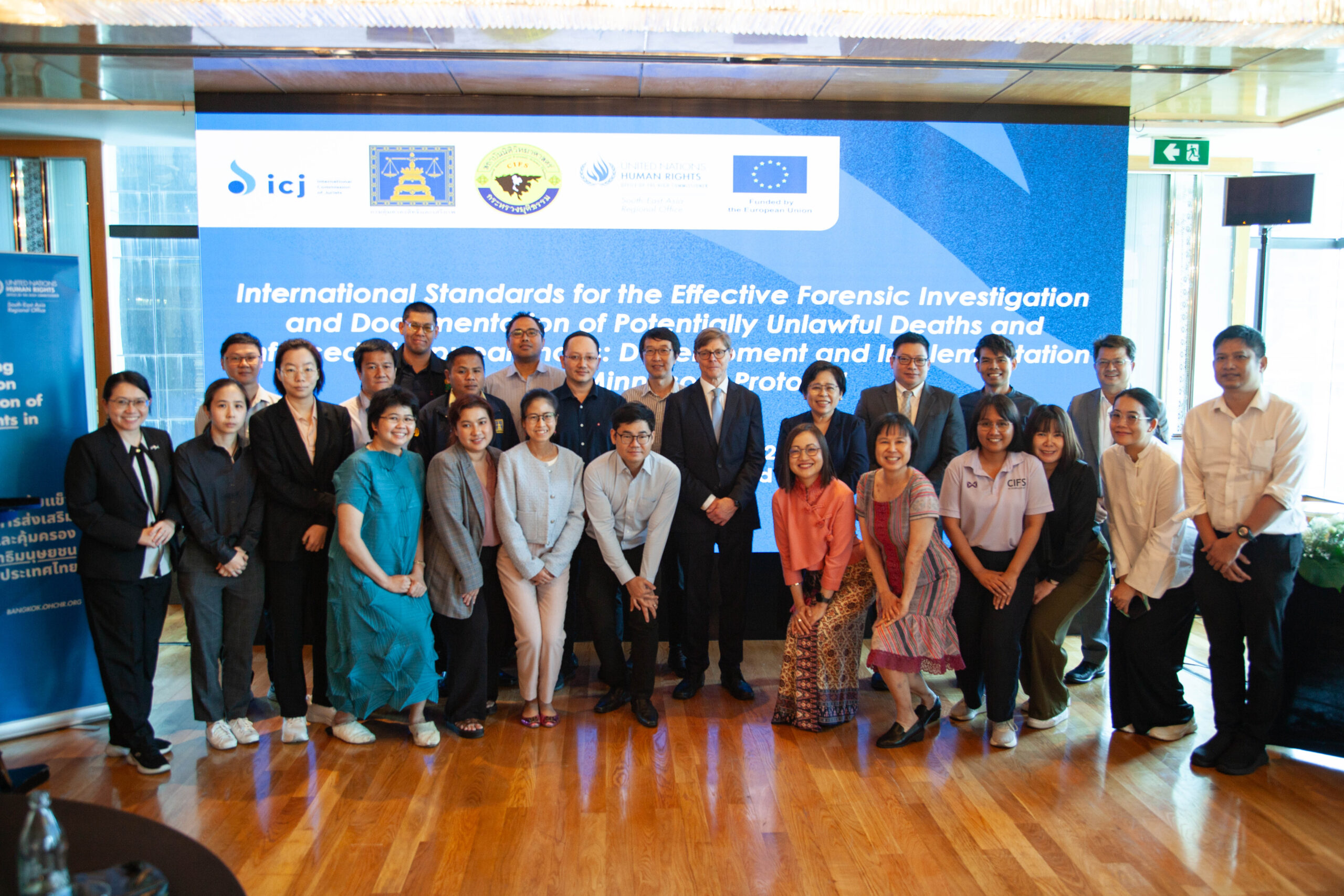On 19–20 February 2025, the International Commission of Jurists (ICJ) co-hosted (see background below for the list of other co-hosts) a workshop in Thailand for 26 forensic doctors and government and administrative officials involved in forensic investigations of cases of torture, other ill-treatment and enforced disappearance, including justice officials, public prosecutors and investigators. The training focused on strengthening forensic investigations into potentially unlawful deaths and suspected enforced disappearances.
Participants were introduced to international standards designed to support investigators, including forensic scientists, in fulfilling their roles. A key focus was the Minnesota Protocol on the Investigation of Potentially Unlawful Death (2016), also known as The Revised United Nations Manual on the Effective Prevention and Investigation of Extra-Legal, Arbitrary and Summary Executions.
“The Protocol is regarded as today’s gold standard for conducting effective investigations into potentially unlawful deaths and suspected enforced disappearances,” said Morris Tidball-Binz, UN Special Rapporteur on extrajudicial, summary or arbitrary executions, who spoke at the workshop.
“And it has been used and proven useful by various experts who conduct forensic investigations in such cases, even in difficult circumstances.”
Discussions also covered challenges and opportunities for forensic doctors in implementing the Protocol in Thailand, particularly with respect to autopsies.
Forensic doctors in attendance identified several key obstacles, including limited awareness and understanding of the Minnesota Protocol and the relevant domestic legal frameworks, limited resources for conducting comprehensive forensic examinations in line with the Protocol’s standards, and procedural barriers, such as forensic doctors lacking the authority to decide whether to perform autopsies.
Cultural and religious concerns, along with distrust in the justice system, have also led some families to refuse permission to carry out an autopsy on the body of their deceased relatives. Additionally, gaps in information about the circumstances of death hinder the ability to interpret autopsy findings and reach accurate conclusions.
“The lack of effective and proper autopsies in cases of suspected unlawful deaths due to these barriers is deeply concerning and inconsistent with international human rights law and standards,” said Sanhawan Srisod, ICJ’s Legal Adviser and the workshop moderator.
“Under the Minnesota Protocol, effective and thorough investigations into unlawful deaths and enforced disappearances would almost always benefit from the performance of an autopsy. A decision not to conduct an autopsy should be justified in writing and subject to judicial review.”
To address these challenges, participants recommended:
- developing step-by-step domestic guidelines for forensic doctors based on the Minnesota Protocol;
- providing systematic training and ensuring adequate resources;
- strengthening collaboration with international laboratories to exchange best practices and obtain technical support when needed; and
- enhancing cooperation among domestic hospitals and relevant agencies.
The workshop is part of the ICJ’s broader efforts to advance the domestic implementation of international standards on forensic investigations. Since 2017, the ICJ has conducted multiple national and regional-level workshops in Thailand, engaging justice sector actors, defence lawyers and civil society representatives.
Background
The workshop was co-hosted by Thailand’s Ministry of Justice’s Rights and Liberties Protection Department, the Central Institute of Forensic Science Thailand, and the Regional Office of the United Nations High Commissioner for Human Rights for South-East Asia.
Speakers included:
- Morris Tidball-Binz, UN Special Rapporteur on extra-judicial summary or arbitrary executions
- Natthapong Champathong, Princess Galya Rajanagarindra Institute
- Panjai Woharndee, Thai Central Institute of Forensic Science
- Pornpen Khongkachonkiet, Cross-Cultural Foundation
- Shivani Verma, OHCHR Regional Office for South-East Asia
- Thansuda Norkaew, Rights and Liberties Protection Department, Ministry of Justice
Further reading
Thailand: launch of the revised Minnesota Protocol
ICJ Practitioners’ Guide no. 14 Investigation and Prosecution of Potentially Unlawful Death
